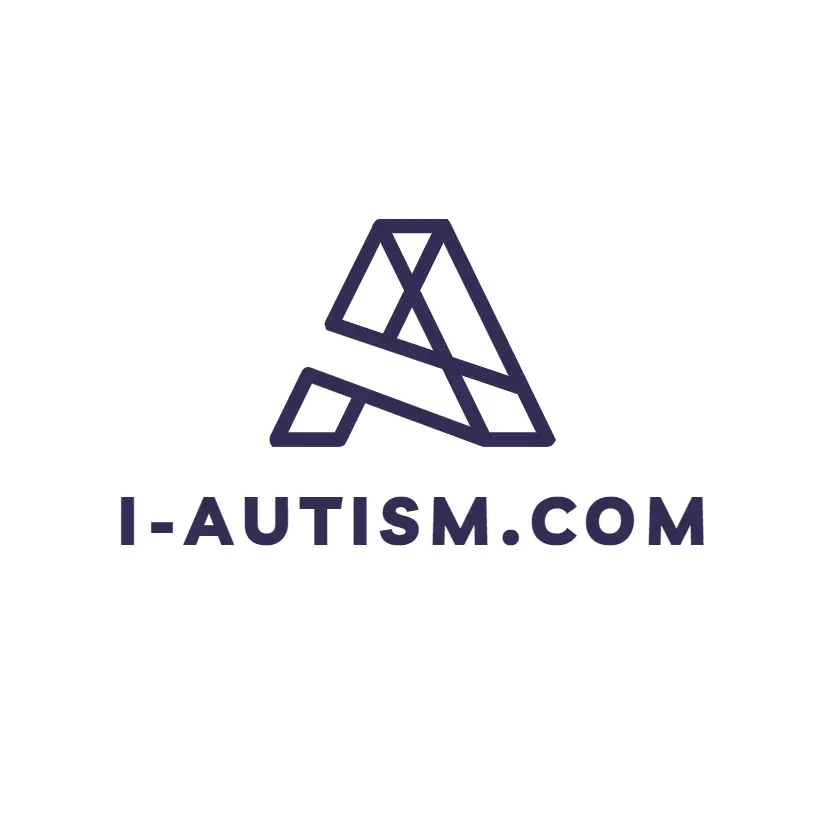Autism signs in adults
Autism is often thought of as a condition that only affects children, but it is important to recognize that autism spectrum disorder (ASD) is a lifelong condition. In fact, many people with autism are not diagnosed until adulthood, as symptoms can be subtle and may be attributed to other conditions such as anxiety or depression. If left unrecognized and untreated, autism can impact a person’s social, emotional, and occupational functioning. That’s why it’s important to be aware of the signs and symptoms of autism in adults. In this blog, we will discuss some of the key indicators of autism in adults, as well as resources and support for those who may be affected by this condition.
Below are some of the signs that adults with Autism experience.
Anxiety and Sensory Overload
- You may have noticed that your loved one has difficulty tuning out background noise and feels anxious or stressed in these situations. This can be especially true if he or she is already feeling overwhelmed by the people around him or her.
- If you notice that your loved one becomes anxious when there are lots of people around him, try taking him somewhere quieter–like a park or library–to help him calm down before returning to the crowded place.
Understanding and Expressing Complex Emotions
- Difficulty processing and expressing emotions
- Inability to understand the emotions of others
- Appearing detached or unemotional in situations where most people would express strong emotions
Difficulty with Transition
- When there is a change in routine, such as starting a new job or moving to a new house, adults with autism may struggle. They can become anxious or upset when the usual routine is disrupted.
Interacting with Others
- Difficulty interpreting nonverbal cues, such as facial expressions or body language. This can make social interactions challenging and may lead to the person feeling awkward in group settings.
- Struggling to initiate or maintain conversations and coming across as aloof or uninterested in others.
Difficulty with Abstract Concepts
- Abstract concepts are difficult for many people with autism, but they can be especially challenging for adults. This can lead to problems with figurative language and metaphors. For example, if someone says “The elephant in the room,” an autistic person may not understand that this means there is a problem that needs to be addressed or talked about openly.
- Similarly, jokes or sarcasm might not make sense because they rely on abstract concepts like irony and humour–things that are hard for those with autism spectrum disorder (ASD) to grasp.
Repetitive Behaviors
- Engaging in repetitive behaviours, such as rocking back and forth or flicking fingers
- Self-soothing by engaging in these behaviours to calm down or regulate their emotions (e.g., when they are upset). This may be a sign that they have sensory processing issues that need to be addressed through occupational therapy.
- Becoming fixated on certain objects or topics and having difficulty shifting attention to other things is another sign of autism in adults.
Nonverbal Communication
- Difficulty understanding nonverbal cues, such as facial expressions or tone of voice.
- Struggling to use nonverbal cues effectively when communicating with others.
- Someone with ASD might not use eye contact when speaking with you because they don’t realize that this is an important part of the conversation.
- A person with ASD may not understand that certain facial expressions mean something different than what they mean for most people; so when someone smiles at them in greeting or surprise–or frowns angrily–it doesn’t register as such for them until later on when they’ve had time to process what happened during an interaction between two individuals who were present at once but weren’t communicating verbally either directly through speech or indirectly through body language signals like hand gestures or facial expressions
Communication
- Difficulty initiating or maintaining conversations
- Difficulty expressing thoughts and feelings in a clear way
- Appearing to be uninterested in the conversations of others
Understanding the Perspective of Others
- The ability to understand the perspectives of others and to see things from their point of view is called “theory of mind.” In adults with autism, this skill may be underdeveloped.
- For example, it can be challenging for them to empathize with others or understand the impact of their actions on others.
- This difficulty in understanding other people’s thoughts and feelings can make social interactions difficult. It can also lead an adult with autism to misinterpret other people’s intentions or motivations (for example: thinking someone is laughing at him when they’re not).
Executive Functioning Skills
The executive functioning skills of an adult with autism may be significantly impaired. These include:
- Difficulty with planning or organization, such as prioritizing tasks and breaking down larger tasks into smaller manageable steps.
- Having trouble with abstract thinking, such as being unable to see the big picture or understand how certain actions will affect others in the future (e.g., “If I do this today, what will happen later?”).
- Problems with self-monitoring (e.g., not noticing when you are feeling angry or upset).
Sensory Processing
- Sensory processing is the way that your brain interprets information from the five senses. It’s how you make sense of what you see, hear, feel and taste.
- It can be difficult to understand why someone with autism would have difficulty with sensory processing if you don’t have it yourself. But imagine going through life with everything feeling like it’s on high volume or too bright–and then add in having an overload of information coming in at once that makes it hard to focus on anything specific.
- When someone has sensory processing issues related to autism:
- They may become overwhelmed by certain stimuli such as loud noises or bright lights; they may need time alone after being exposed to these things so they can calm down before returning to society again (similarly to how we might need time alone after going out for dinner).
- Some people may find themselves avoiding certain foods because they are too crunchy/salty/spicy/etc.
List of 15 Autism signs in adults
Here is a summary of 15 Autism signs in adults
- Anxiety and Sensory Overload: Feeling overwhelmed in a crowded or noisy place, such as a shopping mall or a busy restaurant. Difficulty tuning out background noise and feeling anxious or stressed in these situations.
- Understanding and Expressing Complex Emotions: Struggling with processing and expressing emotions, such as grief or love. Difficulty understanding the emotions of others and appearing detached or unemotional in situations where most people would express strong emotions.
- Difficulty with Transitions: Struggling when there is a change in routine, such as starting a new job or moving to a new house. Becoming anxious or upset when the usual routine is disrupted.
- Interacting with Others: Difficulty interpreting nonverbal cues, such as facial expressions or body language, which can make social interactions challenging. Struggling to initiate or maintain conversations and coming across as aloof or uninterested in others.
- Difficulty with Abstract Concepts such as figurative language or metaphors. Taking things literally and struggling to understand jokes or sarcasm.
- Repetitive Behaviors such as rocking back and forth or flicking fingers, as a way to self-soothe.
- Nonverbal Communication: Difficulty understanding nonverbal cues, such as facial expressions or tone of voice. Struggling to use nonverbal cues effectively when communicating with others.
- Communication: Struggling with initiating or maintaining conversations. Difficulty expressing thoughts or feelings and seeming uninterested in the conversations of others.
- Understanding the Perspective of Others and struggling to see things from another person’s point of view. This can make it challenging to empathize with others or to understand the impact of their actions on others.
- Executive Functioning Skills such as planning or organization. Struggling to prioritize tasks or to break down larger tasks into smaller, manageable steps.
- Sensory Processing: Sensitivity to certain sensory stimuli, such as loud noises or bright lights. Becoming overwhelmed or agitated in these situations and need to remove themselves from the environment.
- Fixation on Certain Topics such as trains or video games. Having difficulty shifting attention to other things and becoming upset if unable to engage in a preferred activity.
- Understanding Social Norms: Struggling to understand appropriate behaviour in public or social cues. Difficulty regulating behaviour in these situations and appearing rude or inappropriate to others.
- Recognizing and Expressing Empathy: Struggling to understand the emotions of others and appearing detached or unemotional in situations where most people would express strong emotions.
- Coping with Stress: Difficulty managing stress and needing additional support and guidance to manage emotions. Becoming overwhelmed or anxious in stressful situations and needing to remove themselves from the situation to calm down.
Read more | Autism Meltdown in Adults | Causes and Management Strategies
Autism in Adults: Diagnosis, Treatment, and Resources
Diagnosing autism in adults can be challenging, as symptoms can vary widely and may be masked by other conditions such as anxiety or depression. It’s important to consult a general physician or a specialist to finalize a diagnosis. Early diagnosis is crucial for effective intervention and treatment, even if you have transitioned into adulthood without having a formal diagnosis. A comprehensive evaluation by a qualified healthcare professional is necessary to determine whether someone has autism spectrum disorder (ASD). This may include a physical exam, medical history, and psychological testing. The diagnostic process may also involve assessments of communication, social skills, and behaviour.
Once a diagnosis of ASD is confirmed, treatment options can be explored, which may include therapy, medication, and support services. Behavioural therapy, such as applied behaviour analysis (ABA), can help individuals with ASD learn new skills and behaviours, while medication may be used to manage symptoms such as anxiety or depression.
Read more | Autism Spectrum Disorder in Adults




